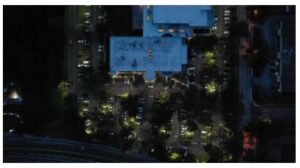Early education plays a vital role in a child’s development and builds the foundation for young learners’ future and success. Children form their first impressions of the world around them during this time. Their experiences at this age shape their outlook on education. That’s why it is essential to choose the right preschool for your kid which meets their needs and helps them grow and learn in a positive and nurturing environment.
Table of Contents
Early education plays a vital role in a child’s development and builds the foundation for young learners’ future and success. Children form their first impressions of the world around them during this time. Their experiences at this age shape their outlook on education. That’s why it is essential to choose the right preschool for your kid which meets their needs and helps them grow and learn in a positive and nurturing environment.
Education in Malaysia
Malaysia is located in Southeast Asia and has a robust, constantly evolving education system. The government prioritise education, so children between the age of 6 and 16 must attend school.
Education in Malaysia is divided into three main categories: primary, secondary, and tertiary. Preschool in Malaysia, or early childhood education, is not compulsory, but it is highly recommended for ages 3 and 5.
Malaysian Schools
There are a variety of schools to choose from in Malaysia, including government, international, and private schools. There are several types of preschools to choose from in Malaysia, including:
- Government preschools: These are often the most affordable option run by the government. They follow the national curriculum and are regulated by the Ministry of Education.
- Private preschools: These are run by private organisations and are funded by tuition fees. They may follow a specific educational approach, such as the Montessori method, and often have a wider range of facilities and extracurricular activities.
- International preschools: These follow a curriculum similar to the one used in their home country and may offer a broader range of facilities and extracurricular activities. They are often more expensive than other types of preschools.
The Montessori Schools
One popular educational approach in Malaysia is the Montessori method. This education method is developed by Dr. Maria Montessori in the early 20th century. Montessori Schools run on the belief that children are naturally curious. And that they learn best when they are allowed to explore and discover for themselves. In a Montessori classroom, children can choose their activities and work at their own pace with the guidance of a trained Montessori teacher.
About Preschools in Malaysia
In Malaysia, the schools follow the below criteria –
Age Group
Preschools in Malaysia typically accept children between the ages of 3 and 5. Some preschools may have a lower age limit of 2 or 2.5, while others may have an upper age limit of 6 or 7. It’s essential to check with the individual preschool to determine their age requirements.
Curriculum
The curriculum at a preschool in Malaysia will depend on the type of school and the educational approach. Government preschools follow the national curriculum designed to introduce young children to basic concepts such as numbers, letters, shapes, and colours. Whereas private and international preschools may follow a different curriculum.
For example, it may include the Montessori method or the International Baccalaureate (IB) Primary Years Programme (PYP).
Languages
Malaysia is a multilingual country, and the language of instruction in schools depends on the type of school. In government schools, the primary language of instruction is Bahasa Malaysia, the national language.
Read also: Education in Malaysia is divided into three main categories: primary, secondary, and tertiary
In Malaysia, the official language is Malay, but English is also widely spoken and is a popular medium of instruction in many schools. In addition, some schools may offer additional language programs, such as Mandarin or Tamil.
Conclusion
Preschool education in Malaysia is essential for a child’s future learning and development. Many options are available, including government-run, private, and international schools. The curriculum is designed to help children develop essential social, emotional, and cognitive skills. Whether you choose a government-run, private, or international school for your children, you can expect a high-quality education tailored to your child’s needs.





More Stories
How Do You Choose Between 6-Hour and 12-Hour French Tutoring?
What Is a Youth Opportunity Center? Programs, Benefits, and How They Empower Young People
Top 7 Ways to Learn French Online from Home in Paris